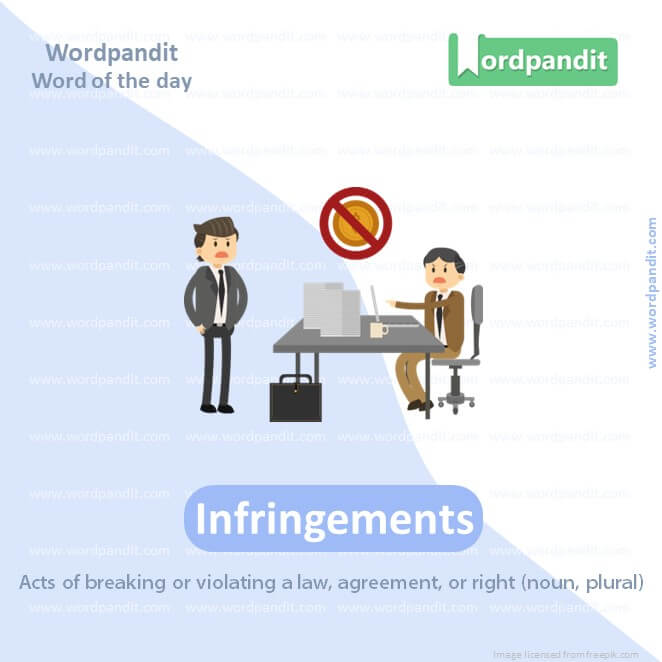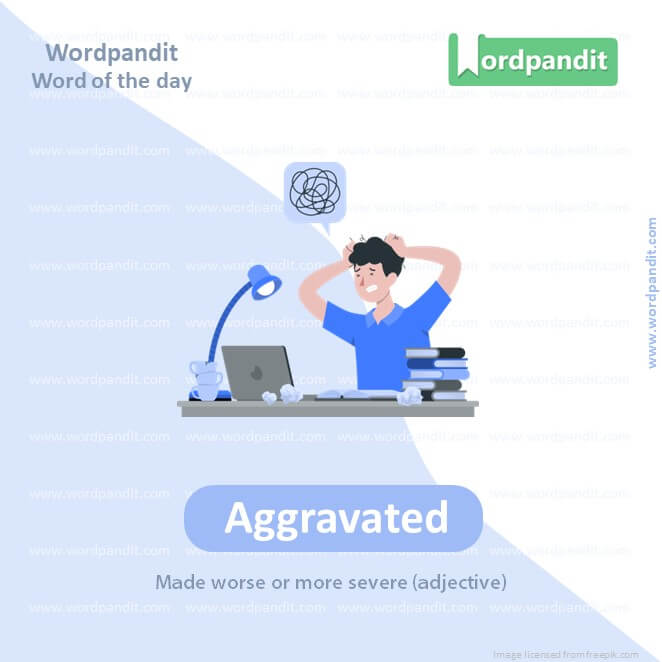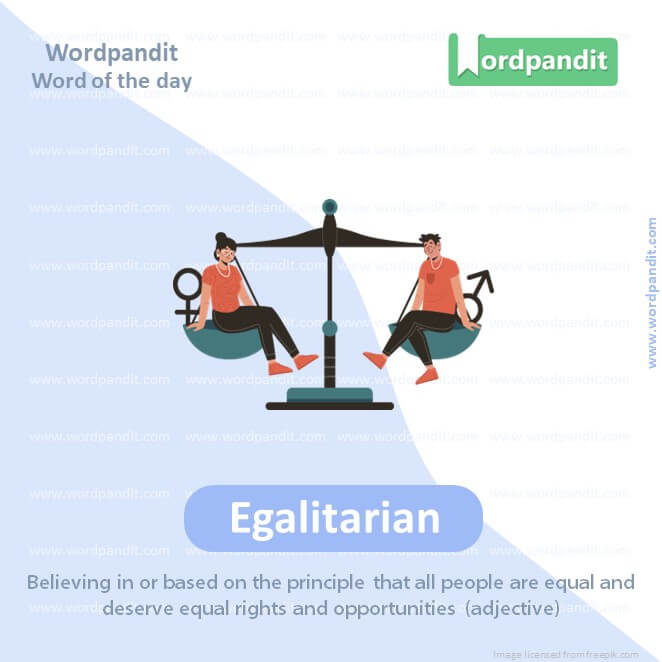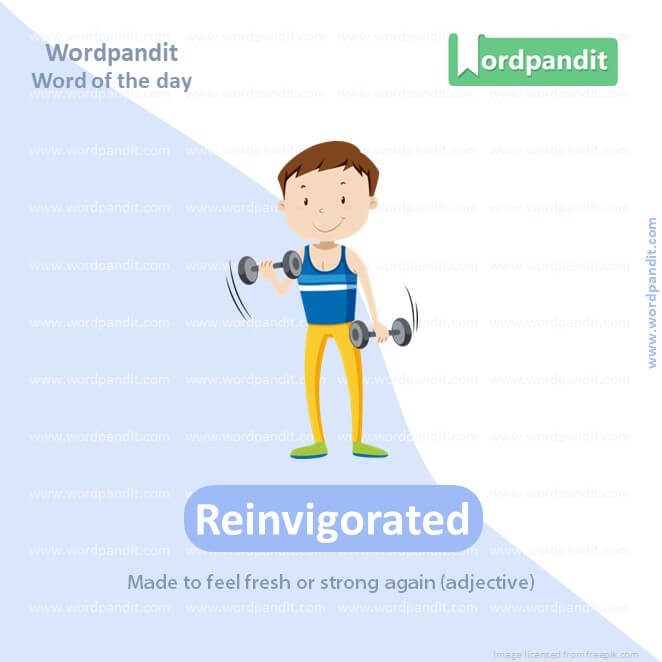Daily Vocabulary Words: List of Daily Used Words in Leading Indian Newspapers
Hi there. Welcome to this special section @ Wordpandit. Our endeavour here is straightforward: highlighting daily vocabulary words that you would come across in leading newspapers in the country. We have included the following newspapers in our selection:
• The Times of India
• The Economic Times
• Hindustan Times
• Mint
• Indian Express
We are putting in extensive work to develop your vocabulary. All you have to do is be regular with this section and check out this post daily. This is your repository of commonly used words; essentially, we are posting a list of daily used words. Hence, this has significant practical application as it teaches you words that are commonly used in leading publications mentioned above.
Visit the website daily to learn words from leading Indian newspapers.
WORD-1: Gratification
CONTEXT: His proposal to ban future cigarette sales to anyone currently 15 or younger offers little by way of political gratification.
SOURCE: The Hindu
EXPLANATORY PARAGRAPH: Imagine you do something really good, like finishing your puzzle or helping mom and dad with a chore, and you feel super happy and proud about it. That happy feeling you get because you did something awesome is called gratification. It’s like getting a big, warm hug from the inside because you’re pleased with what you’ve done.
MEANING: The feeling of pleasure or satisfaction that comes from achieving something or having one’s desires fulfilled (noun).
PRONUNCIATION: grat-ih-fi-KAY-shun
SYNONYMS: Satisfaction, Pleasure, Contentment, Fulfillment, Enjoyment, Delight
USAGE EXAMPLES:
1. She felt a deep sense of gratification after donating her toys to the less fortunate children.
2. Completing the marathon gave him immense gratification.
3. Her hard work paid off, bringing her gratification beyond words.
4. The chef found gratification in seeing guests enjoy his meals.
5. The gratification of his curiosity led him to read every book in the library.

WORD-2: Infringement
CONTEXT: A small number of rebellious backbench Conservatives, outraged by an infringement of smokers’ liberties, can damage their leader by undermining his authority – even if their rebellion fails.
SOURCE: The Hindu
EXPLANATORY PARAGRAPH: Imagine you have a rule at home that you cannot eat cookies before dinner. If your brother takes a cookie and eats it before dinner, he’s breaking that rule. Infringement is just a fancy word for when someone doesn’t follow the rules or steps over the line of what they’re allowed to do, just like taking the cookie when they shouldn’t.
MEANING: Acts of breaking or violating a law, agreement, or right (noun, plural).
PRONUNCIATION: in-FRINGE-ment
SYNONYMS: Violation, Breach, Infraction, Transgression, Trespass, Contravention
USAGE EXAMPLES:
1. The company was sued for infringement of copyright laws.
2. His actions were seen as an infringement on their freedom of speech.
3. There was a clear infringement of the school’s dress code.
4. Monitoring employees’ emails without consent is an infringement of privacy.

WORD-3: Aggravate
CONTEXT: Keir Starmer’s endorsement will only aggravate Tory suspicions that Sunak has lapsed into the worst kind of bossy, heavy-handed, lefty government. Liz Truss warns that a Conservative government should not be seeking to “extend the nanny state”.
SOURCE: The Hindu
EXPLANATORY PARAGRAPH: Imagine you have a small scratch on your arm, and you keep scratching it even more. Instead of letting it heal, you make it worse. That’s like aggravate. It means making something that’s already a bit bad even worse, like turning a tiny scratch into a big ouch.
MEANING: Made worse or more severe (adjective).
PRONUNCIATION: AG-ruh-vate
SYNONYMS: Worsen, Exacerbate, Annoy, Irritate, Provoke, Escalate
USAGE EXAMPLES:
1. Yelling at a crying child only serves to aggravate the situation.
2. Not resting the injured foot could aggravate the pain.
3. Constant interruptions aggravate me when I’m working.
4. Polluted water can aggravate the condition of the river.

WORD-4: Egalitarian
CONTEXT: He was not an apostle of Boris Johnson’s vaguely egalitarian levelling-up agenda. He has weakened environmental targets, and during the pandemic he was the lockdown-sceptics’ friend in the Treasury.
SOURCE: The Hindu
EXPLANATORY PARAGRAPH: Imagine a big playground where everyone, no matter if they are tall or short, gets to play on all the swings and slides equally. Nobody is told they can’t play because they’re different. Egalitarian is a word that means everyone is treated the same and has the same chances, like everyone getting a turn on the swing.
MEANING: Believing in or based on the principle that all people are equal and deserve equal rights and opportunities (adjective).
PRONUNCIATION: ee-guh-LAIR-ee-tuhn
SYNONYMS: Equal, Fair, Democratic, Impartial, Just, Unbiased
USAGE EXAMPLES:
1. The group adopted an egalitarian approach to decision-making.
2. She has always fought for egalitarian rights in education.
3. Their egalitarian society does not discriminate based on gender.
4. The principle of egalitarianism guides the organization’s policies.
WORD-5: Infantilised
CONTEXT: To want a state that functions humanely is a reasonable political demand, not a symptom of infantilised craving for nanny.
SOURCE: The Hindu
EXPLANATORY PARAGRAPH: Think about when you try to do something all by yourself, like tying your shoes, but someone else does it for you because they think you can’t do it. Even though they’re trying to help, it makes you feel like a little baby who can’t do anything. Infantilised means treating someone as if they are a baby or child when they are actually capable of doing more.
MEANING: Treated as if still a child, despite being capable of more mature behavior (verb).
PRONUNCIATION: IN-fuhn-tuh-lized
SYNONYMS: Patronized, Babied, Coddled, Pampered, Overprotected, Mollified
USAGE EXAMPLES:
1. The teacher infantilized the students by solving problems for them instead of encouraging independence.
2. Being infantilized by her colleagues, she felt undervalued at work.
3. The media often infantilizes celebrities by focusing on their personal lives instead of their achievements.
4. He resented being infantilized by his family, craving more autonomy.

WORD-6: Reinvigorated
CONTEXT: A reinvigorated economy had helped ensure that the fruits of development started reaching the people at scale, imbuing them with a sense of purpose and hope, and translated into a bigger mandate five years ago, she averred.
SOURCE: The Hindu
EXPLANATORY PARAGRAPH: Imagine you’re playing outside and start to feel really tired, but then you drink some cold water, and suddenly you have a lot of energy to play again. Reinvigorated is a fancy word for feeling refreshed and full of energy once more, like the water gave you a power-up to keep having fun.
MEANING: Made to feel fresh or strong again (adjective).
PRONUNCIATION: ree-IN-vig-uh-rated
SYNONYMS: Revitalized, Refreshed, Renewed, Energized, Stimulated, Invigorated
USAGE EXAMPLES:
1. After a short break, she felt reinvigorated and ready to continue her work.
2. The team was reinvigorated by the new coach’s enthusiasm.
3. A vacation can leave you feeling reinvigorated and ready to face challenges.
4. The rainstorm reinvigorated the parched garden, bringing it back to life.
WORD-7: Nonchalant
CONTEXT: A nonchalant observation that the government would detail a road map for attaining a ‘Viksit Bharat’ by 2047 in its full Budget in July, was premised on the certainty of winning a ‘resounding’ electoral mandate.
SOURCE: The Hindu
EXPLANATORY PARAGRAPH: Think about when you’re trying to act cool and calm, like if you just made an amazing drawing and someone says, “Wow, that’s awesome!” and you just shrug and say, “Thanks, it was nothing,” even though you’re really happy inside. Nonchalant is when you act all cool and not worried about something, even if it’s a big deal.
MEANING: Appearing calm and not showing interest or enthusiasm, seeming coolly unconcerned (adjective).
PRONUNCIATION: non-SHA-lahnt
SYNONYMS: Indifferent, Unconcerned, Cool, Casual, Relaxed, Unruffled
USAGE EXAMPLES:
1. He gave a nonchalant shrug when asked about his exam results.
2. Despite the chaos, she remained nonchalant.
3. His nonchalant attitude made him popular among his peers.
4. She walked by with a nonchalant air, pretending not to notice the stares.

WORD-8: Applauded
CONTEXT: The Budget applauded the recently announced scheme to set up rooftop solar in 1 crore households.
SOURCE: The Hindu
EXPLANATORY PARAGRAPH: Imagine you did something really great, like singing a song in front of everyone. After you finish, everyone starts clapping their hands because they loved it. That clapping to show they liked what you did is called applauding. It’s a way to say “Great job!” or “We loved it!” without using words.
MEANING: To show approval or praise by clapping hands (verb).
PRONUNCIATION: uh-PLAW-ded
SYNONYMS: Praised, Cheered, Commended, Celebrated, Acclaimed, Lauded
USAGE EXAMPLES:
1. The audience applauded loudly after the performance.
2. Her bravery was applauded by the community.
3. The teacher applauded the student’s honest mistake.
4. Innovations in technology are often applauded for their impact.
WORD-9: Stagnated
CONTEXT: The Periodic Labour Force Survey data show that regular salaried employment during the last five years has stagnated.
SOURCE: The Hindu
EXPLANATORY PARAGRAPH: Imagine a pond where the water doesn’t move; it just sits there without going anywhere. After a while, it starts to get yucky because it’s not fresh anymore. Stagnated is like that pond. It means not moving forward or growing, just staying the same and not getting any better. It’s like when you play the same level of a game over and over without reaching the next one.
MEANING: Failed to develop, progress, or change; remained inactive or dull (verb).
PRONUNCIATION: STAG-nay-ted
SYNONYMS: Stalled, Stagnant, Inactive, Unchanged, Motionless, Idle
USAGE EXAMPLES:
1. The project stagnated due to a lack of funding.
2. Without new ideas, the discussion stagnated.
3. The economy stagnated, leading to high unemployment rates.
4. His career stagnated after years in the same position without any advancement.
WORD-10: Accrued
CONTEXT: These data points tell us that the benefits of the supposedly stellar output growth have accrued to those receiving rents, interests, and profits who form a tiny share of the population or households.
SOURCE: The Hindu
EXPLANATORY PARAGRAPH: Imagine you have a piggy bank, and every time you do chores, you get a coin to put in it. Over time, you keep adding more coins, and your piggy bank gets fuller and fuller. “Accrued” is a word that means things are adding up over time, just like your coins in the piggy bank. It’s not just about money, though. It can also mean other good things that grow or increase bit by bit because of your efforts, like points in a game or even the love in a friendship.
MEANING: Accumulated or increased over time, often referring to money, benefits, or other gains (verb).
PRONUNCIATION: uh-KROOD
SYNONYMS: Accumulated, Built up, Collected, Gathered, Amassed, Increased
USAGE EXAMPLES:
1. Interest on the savings account accrued over the years, increasing the total amount of money.
2. She accrued a lot of experience in her field by working on various projects.
3. Vacation days accrued at the rate of two days per month, giving employees more time off the longer they worked.
4. Rewards points accrued with each purchase, allowing customers to save money on future buys.
Vocabulary Words
When delving into the dynamic world of languages, the grandeur of ‘vocabulary words’ is all-encompassing. The importance of ‘vocabulary words’ in effective communication cannot be overstated; it’s these words that form the backdrop of any language, painting intricate pictures of thoughts and ideas.
Starting on the journey of learning ‘vocabulary words’, one should steer clear from rote memorization. The traditional structure of merely repeating words lacks the necessary context and application that actually embeds these words into your memory. To truly master the ‘vocabulary words’, one needs an integrated, immersive approach.
The first step towards mastering ‘vocabulary words’ is to engage with varied language mediums. Expanding beyond textbooks to read fiction, articles, blogs, and other forms of content not only diversifies your vocabulary but also acts as a mirror to reflect the practical application of these words. Essentially, you’re exposed to the words as they are commonly used, allowing you to truly understand their essence.
Empowering this journey, tech tools like language learning apps and memory-enhancing flashcards significantly aid in learning ‘vocabulary words’. These interactive tools provide a more engaging learning experience and hone word retention. Mnemonic devices, associating words with a unique story or visual image, enrich the process and make memory recall more efficient.
Practicing ‘vocabulary words’ by using them in day-to-day conversations exemplifies learning by doing. It also strengthens the neural pathways and improves overall word recall. This, coupled with regular revisions, ensures your grasp over ‘vocabulary words’ remains strong.
In conclusion, learning ‘vocabulary words’ is not just about adding words to your linguistic cupboard, but understanding their essence and utilizing them effectively. An inclusive approach to learning that combines diverse reading materials, technology tools, mnemonic devices and practice can really propel your mastery over ‘vocabulary words’. Remember, language is the bloodline of communication, and ‘vocabulary words’ are its heartbeat. ‘













